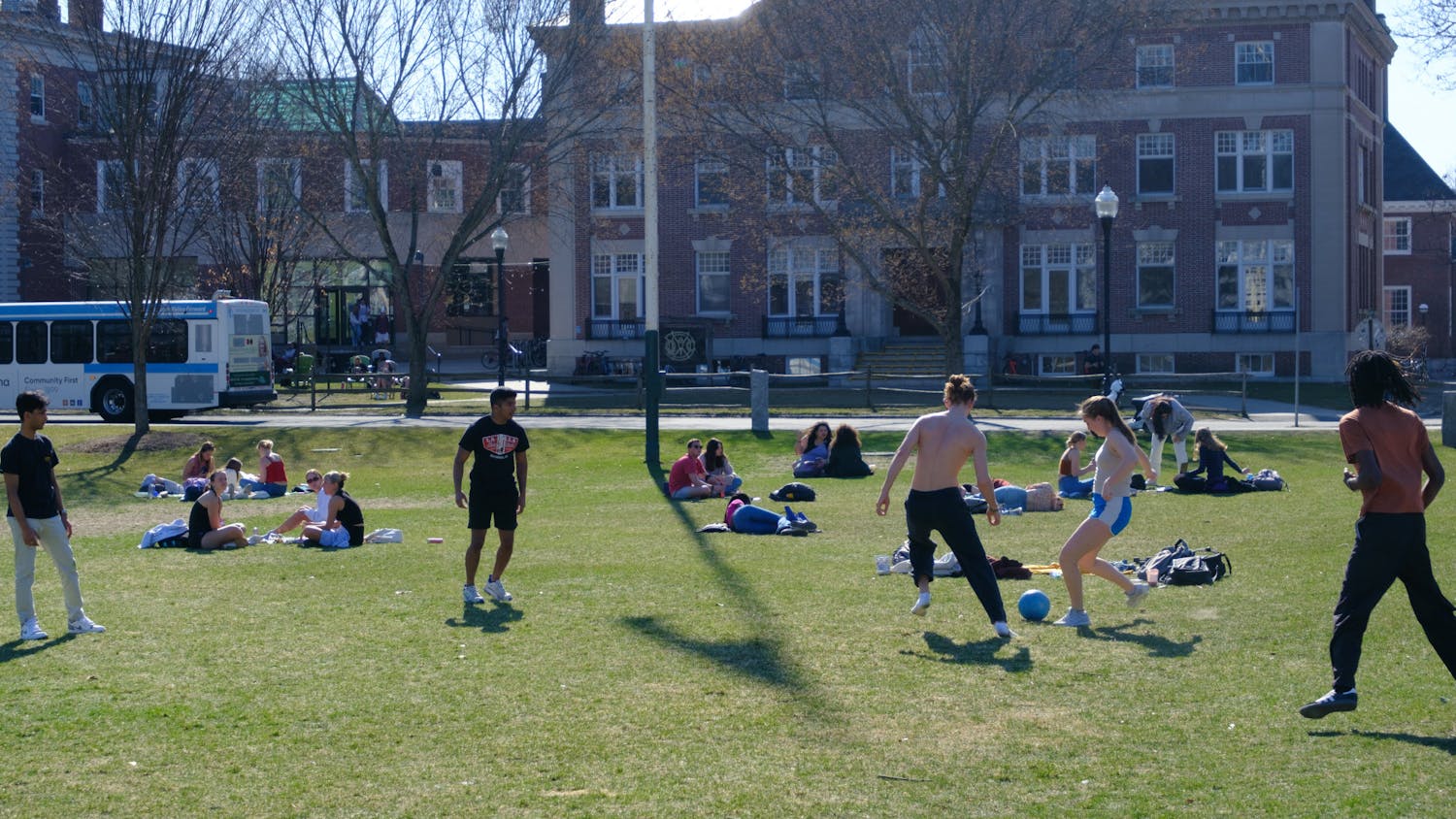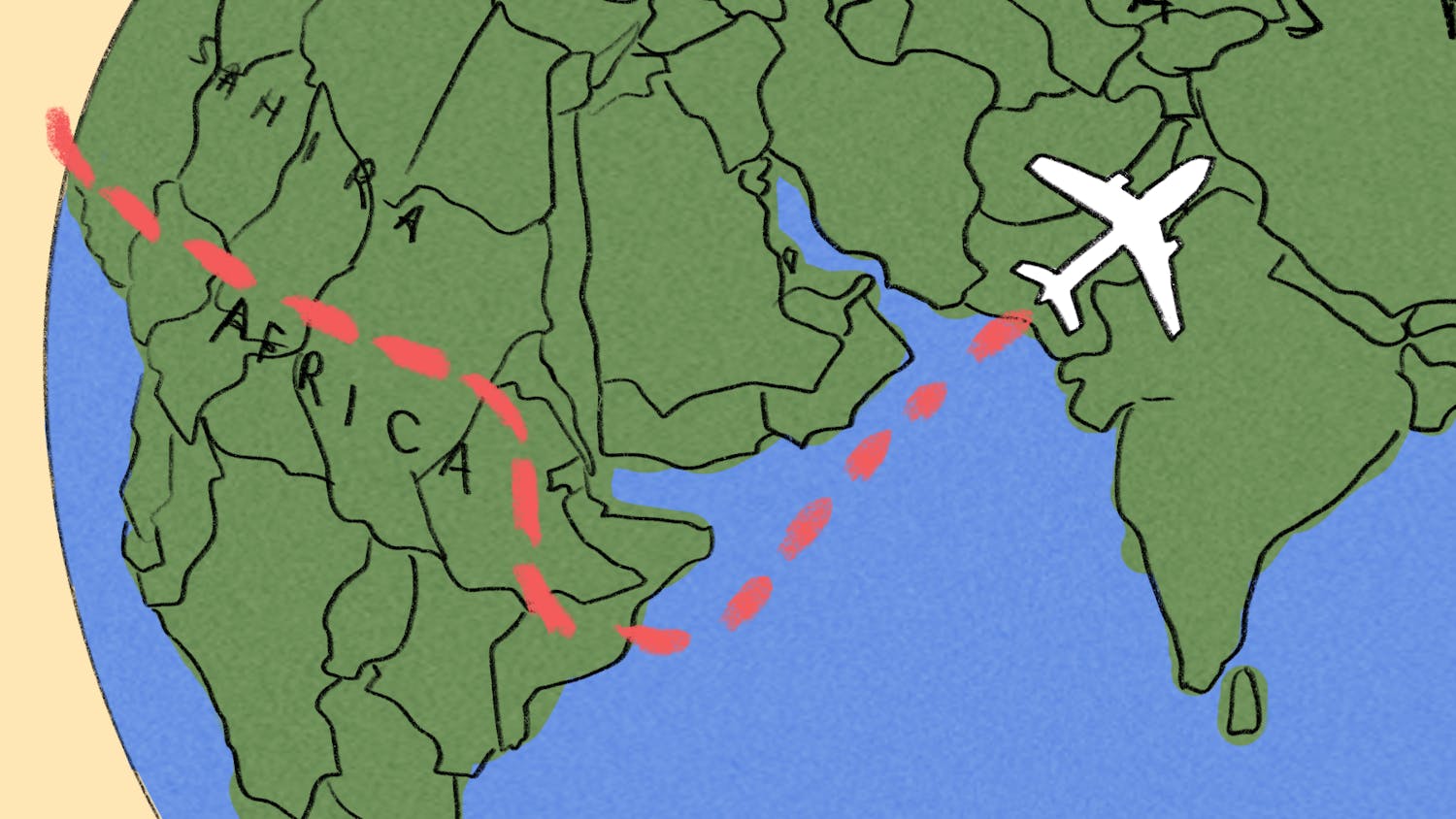We drive along the Hudson River, having already said goodbye to the privacy of a house rented by eight West Point “firsties” for the weekend. My friend, Eric, is behind the wheel of his grandfather’s Thunderbird, and I sit in the passenger seat — the only other seat in the car. It’s the perfect day to celebrate “100th Night,” with temperatures soaring above 40 degrees and wispy cirrus clouds accentuating the blueness of the sky.
“Do you see that house there? On our right?” Eric asks.
“Yep. What about it?”
“Apparently it used to be owned by Sylvester Stallone. You can see West Point from it — the gray walls and everything.”
“Gray walls?”
“Yeah. Surrounds the school.”
We cross the bridge to Bear Mountain. A boat’s horn echoes below us.
When we reach West Point, a security guard checks Eric’s ID, comments that he hasn’t seen a Thunderbird “in ages” and lets us through past the gates.
After Eric parallel parks along the river, we walk through campus. I take my suitcase, inside of which reside black stilettos and a floor-length blue gown from Rent the Runway. Eric gives me a brief tour, naming barracks, mess halls and famous statues. West Point, as Eric points out, is gray. Very much so. The buildings are tall and regal, built from granite. The Cadet Honor Code is engraved on a large stone near the entrance: “A cadet will not lie, cheat, steal or tolerate those who do.”
We arrive at his barracks (which I incorrectly called “dorms” earlier that day). Eric, as the Company Commander, lives on the first floor with one of his best friends, across from the Company’s Tactical Officer. His floors are tiled, free of dirt and stains. His bed is expertly made, with gray blankets taped underneath the mattresses to ensure a tight surface void of wrinkles. His desk cabinets are locked. Closets are organized per regulation, official uniforms ironed, caps equally spaced apart. I feel like I have entered into a different world, a parallel college experience existing alongside but distinctly, jarringly separate from Dartmouth.
A matrix of sticky notes decorates the wall next to his roommate’s bed, each note sporting a number written in thin black ink. The countdown until graduation begins at “98” and descends to “26.” A final sticky “…” marks the final weeks until commencement. Much too soon, “25” until “1” will replace “98” until “26.”
We have an hour before we must leave for the military ball. Eric polishes his black dress shoes in the corner and I sit in his desk chair, noting the Cyber Branch insignia on his ThinkPad. Two lightning bolts pierced by a sword.
His roommate arrives shortly after with his date. He removes the “98” sticky on the wall and tosses it in the trash.
97 days until graduation.
At 16:33, Eric’s friend group of six guys and their respective dates gather outside his door. The banquet officially starts at 17:00, but photos must be taken and compliments reciprocated.
Eric turns to me. “Have I showed you the posters yet?”
I shake my head, and our group of 12 walks down the hallway into a room temporarily designated the “Female Changing Area.”
Five framed posters hang on the wall closest to the door: four in a line and one on top. Eric’s photo and accompanying “fun facts” are on the top-most board. The left-most poster notes West Point’s three pillars of excellence: military, academic and physical.
At 16:47, we walk toward Washington Hall. Once there, several photos are taken: one of just the boys, one of just the girls, one of the girls with their dates and one of just Eric and me. This is the first and only West Point ball that does not require students to wear their military dress uniform. Eric and his friends are all consequently outfitted in “civilian” suits and ties, which they deem quite comfortable.
Once inside the mess hall, we speed walk to our assigned table. The boys lead the way, and the girls follow slightly slower, careful to avoid falling in our heels and gowns. It is now 16:59, and we have but one minute to be seated before the official announcements, speeches and toasts begin.
Each seat is adorned with a name card. Mine says “Ms. Guo” underneath the United States Military Academy crest. A bald eagle rests atop a shield decorated with the American flag. In the middle of the shield lies the goddess Minerva’s helmet with a sword piercing through, representing wisdom and strategy. “Duty. Honor. Country” garnishes the top left.
Dinner consists of rolls, salads, filet mignon, green beans, mashed potatoes and dessert. Every plate in the Hall is oriented so the crest faces upward.
The guest of honor that night is a four-star general. His speech resounds with humor rooted in West Point traditions and ends on a sobering note that asks the Cadets to consider “Your Country, Your Army, Your Role.”
The Class of 2017, he says, will graduate into a more “complex,” terrifying world than any class before them. They will fight, defend, attack, fall and continue. They will become leaders of men and women — leaders who “care.”
As I sit next to Eric, listening to this speech given by an officer holding the highest rank in the United States Army, I can’t help but marvel at how differently we will live our lives post-commencement. For all of us, graduation is a rite of passage. But for West Point, it seems to an outsider to be something much more poignant.
At one point on Saturday, Eric said, “It’s not about whether or not I’ll take a bullet for my friends. Of course I will. That’s a given. It’s something more — something greater than, ‘I have your back’ during wartime and peacetime. It’s a bond that runs far deeper than anything I could have ever hoped to find outside of West Point.”



